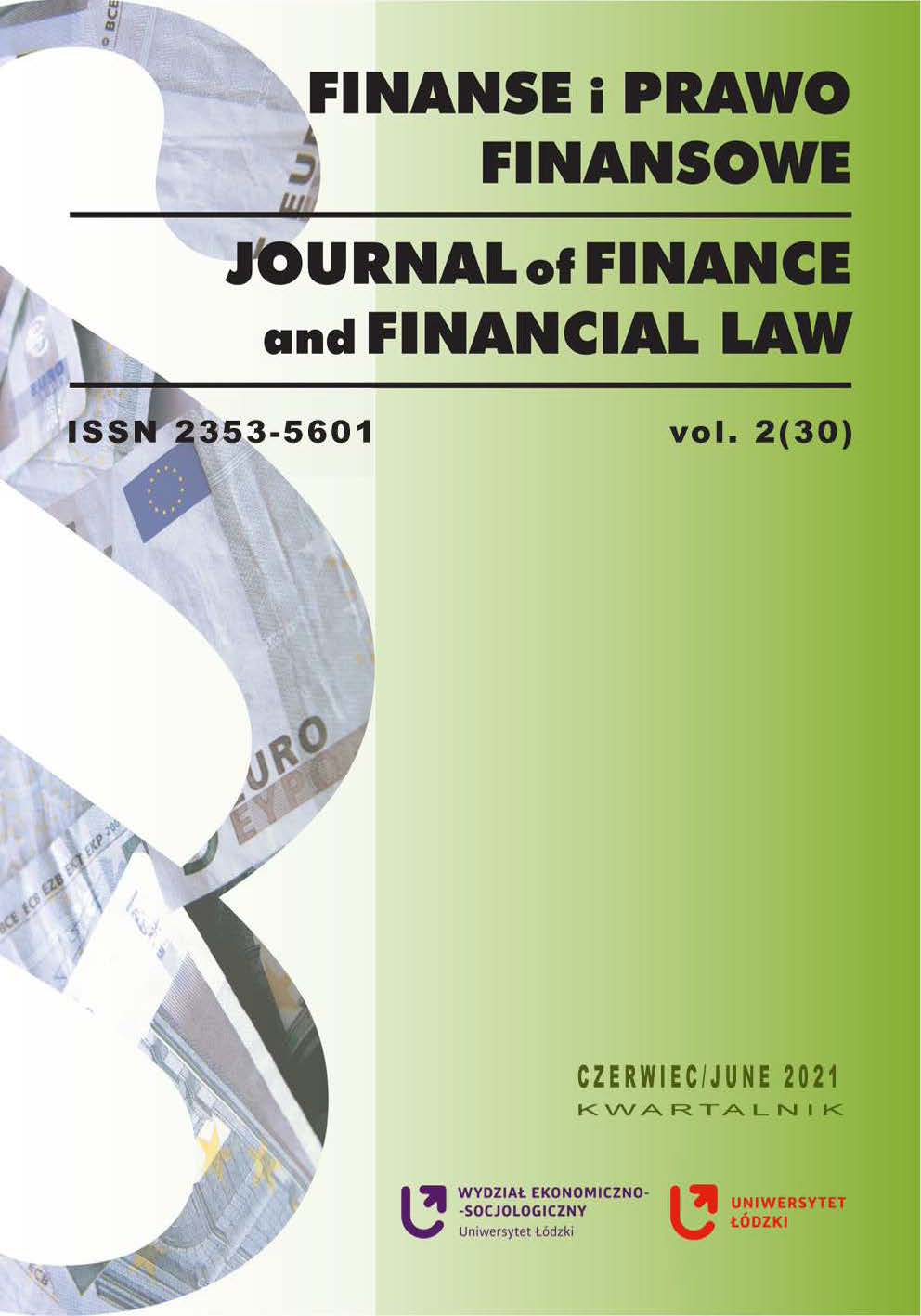Algorithmic Trading and Efficiency of the Stock Market in Poland
DOI:
https://doi.org/10.18778/2391-6478.2.30.05Keywords:
algorithmic trading, market efficiency, trading system, investing, technical analysisAbstract
The aim of the article is to investigate the impact of algorithmic trading on the returns obtained in the context of market efficiency theory. The research hypothesis is that algorithmic trading can contribute to a better rate of return than when using passive investment strategies. Technological progress can be observed in many different aspects of our lives, including investing in capital markets where we can see changes resulting from the spread of new technologies.
The methodology used in this paper consists in confronting a sample trading system based on classical technical analysis tools with a control strategy consisting in buying securities at the beginning of the test period and holding them until the end of this period.
The results obtained confirm the validity of the theory of information efficiency of the capital market, as the active investment strategy based on algorithmic trading did not yield better results than the control strategy.
Downloads
References
Alma, Y. Alanis, Arana-Daniel, N., Lopez-Franco, C., eds. (2019). Artificial Neural Networks for Engineering Applications, Elsevier.
Google Scholar
Appel, G. (2005). Technical Analysis: Power Tools for Active Investors. New York: Pearson Education Inc.
Google Scholar
Bilski, J., Kowalczyk, B., Marchlewska, A., Zurada, J.M. (2020). Local Levenberg-Marquardt Algorithm for Learning Feedforwad Neural Networks. Journal of Artificial Intelligence and Soft Computing Research, 10(4).
Google Scholar
DOI: https://doi.org/10.2478/jaiscr-2020-0020
Czekaj, J., Woś, M., Żarnowski, J. (2001). Efektywność giełdowego rynku akcji w Polsce. Z perspektywy dziesięciolecia. Warszawa: Wydawnictwo Naukowe PWN.
Google Scholar
Dziwiński, P., Bartczuk, Ł., Paszkowski, J. (2020). A New Auto Adaptive Fuzzy Hybrid Particle Swarm Optimization and Genetic Algorithm. Journal of Artificial Intelligence and Soft Computing Research, 10(2).
Google Scholar
DOI: https://doi.org/10.2478/jaiscr-2020-0007
Fama, E.F. (1970). Efficient Capital Markets: A review of Theory and Empirical Work. Journal of Finance, 2.
Google Scholar
DOI: https://doi.org/10.2307/2325486
Homenda, W., Jastrzębska, A., Pedrycz, W., Fusheng, Y. (2020). Combining Classifiers for Foreign Pattern Rejection, Journal of Artificial Intelligence and Soft Computing Research, 10(2).
Google Scholar
DOI: https://doi.org/10.2478/jaiscr-2020-0006
mql4.com, www.mql4.com [Accessed: 4.11.2020].
Google Scholar
Murphy, J.J. (2019). Technical Analysis of the Financial Markets: A Comprehensive Guide to Trading Methods and Applications. New York: New York Institute of Finance.
Google Scholar
Nowicki, R.K., Grzanek, K., Hayashi, Y. (2019). Rough Support Vector Machine for Classification with Interval and Incomplete Data. Journal of Artificial Intelligence and Soft Computing Research, 10(1).
Google Scholar
DOI: https://doi.org/10.2478/jaiscr-2020-0004
Starczewski, J.T., Goetzen, P., Napoli, Ch. (2020). Triangular Fuzzy-Rough Set Based Fuzzification of Fuzzy Rule-Based Systems. Journal of Artificial Intelligence and Soft Computing Research, 10(4).
Google Scholar
DOI: https://doi.org/10.2478/jaiscr-2020-0018
Sysło, M.M. (2016). Algorytmy (Algorithms). Gliwice: Wydawnictwo HELION.
Google Scholar
Szyszka, A. (2003). Efektywność giełdy papierów wartościowych w Warszawie na tle rynków dojrzałych (Efficiency of the Warsaw Stock Exchange in comparison with mature markets). Poznań: Wydawnictwo Akademii Ekonomicznej w Poznaniu.
Google Scholar
Downloads
Published
How to Cite
Issue
Section
License

This work is licensed under a Creative Commons Attribution-NonCommercial-NoDerivatives 4.0 International License.














